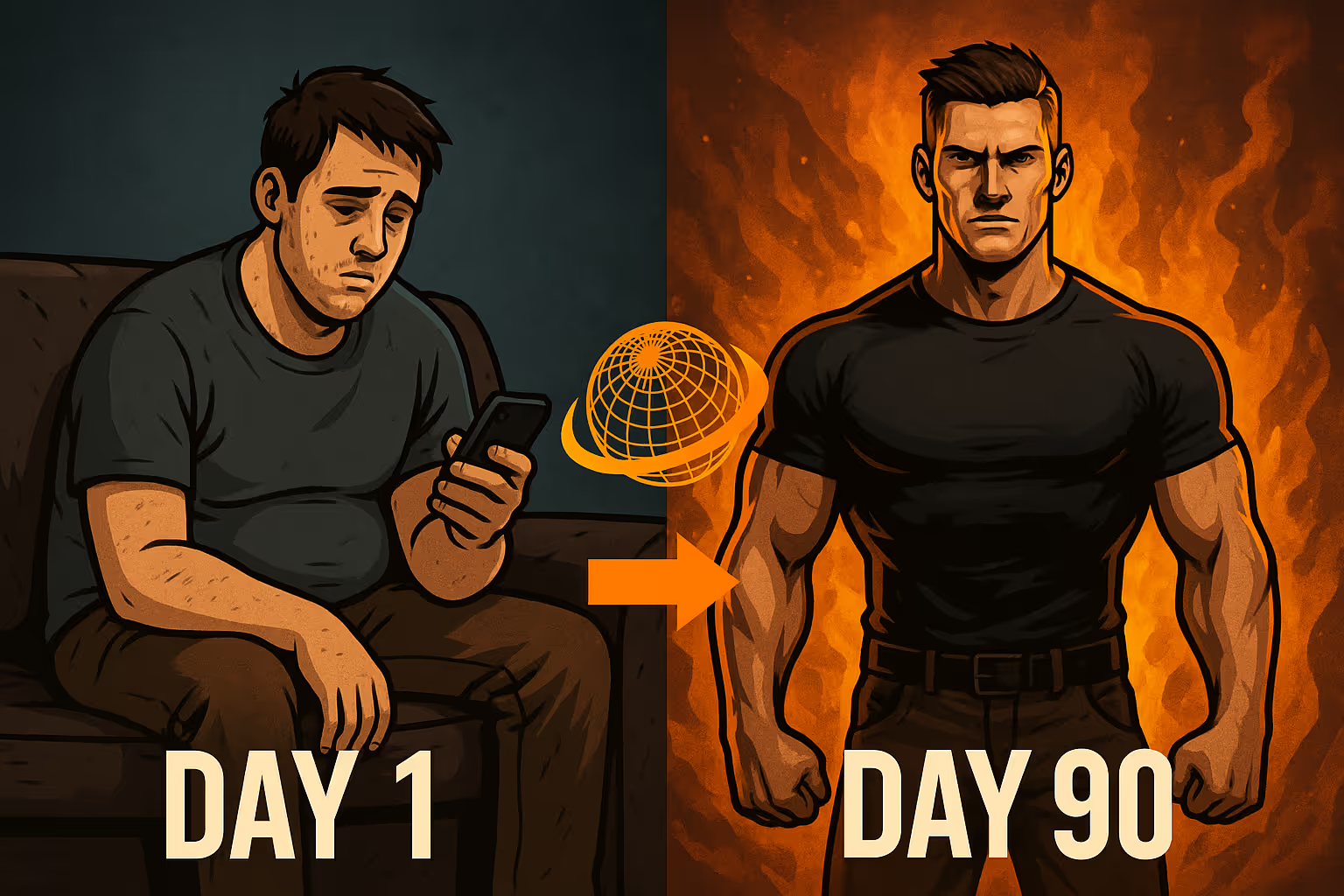
Don’t Trade Just Because You’re Bored
Let’s be brutally honest.
Most guys don’t start trading because they have a solid financial plan.
They start because:
- They saw a TikTok about “flipping $500 into $5,000”
- They’re tired of their 9–5
- They think it’s the fastest way to get rich
Here’s the reality:
Trading is a skill-based, capital-intensive game.
And entering too early will cost you far more than you realize.
This article shows you when it actually makes sense to trade—and what you should have in place first.
What Trading Really Is (Not What You’ve Been Sold)
Trading is not gambling.
It’s not quick dopamine.
It’s not a side hustle.
Trading is:
✔ Tactical decision-making
✔ Pattern recognition
✔ Emotional regulation under pressure
✔ Strategic risk management
Before you think about trading, you need to think like a business owner.
The Harsh Data: Most Retail Traders Lose
According to multiple broker disclosures:
- 70–90% of retail traders lose money
- Most accounts blow up within the first 3–6 months
- The biggest reason: over-leverage, under-education
If you're not prepared with capital, knowledge, and psychological tools—you're the liquidity for those who are.
When Does Trading Actually Make Sense?
Here’s a checklist that separates the serious from the naive:
✅ 1. You Have at Least 6–12 Months of Living Expenses Saved
Before you risk anything, your financial foundation should be unshakable.
- Emergency fund = no emotional decision-making
- You can handle a 100% drawdown—because you’ve planned for it
✅ 2. You’ve Mastered Budgeting & Investing First
Trading is not your first step in finance.
It’s your advanced play.
You should already:
- Understand how to save, invest, and grow capital
- Know the difference between speculation and long-term investing
✅ 3. You Have Dedicated Capital (That You Can Afford to Lose)
Never trade rent money.
Never trade savings for your family.
Set up a trading account that’s separate from your life.
Suggested:
- $1,000–$5,000 to start testing
- Max risk per trade: 1–2% of total account
✅ 4. You’ve Spent at Least 3–6 Months Learning
Before putting in money, put in time:
- Read trading books (Price Action, Risk Management, Psychology)
- Watch chart breakdowns
- Study real traders—not influencers
- Practice with a demo account
This is your “university” for markets.
Skip it, and you’ll pay tuition in losses.
✅ 5. You’re Emotionally Stable Under Pressure
If you can’t:
- Handle losses without rage
- Stick to your plan under stress
- Avoid revenge-trading
- Walk away after a red day
…you're not ready to trade real capital yet.
The Mindset Shift: Trading Is Boring to the Disciplined
Top traders don’t chase. They follow systems.
They:
- Repeat boring routines
- Stick to 1–2 setups
- Track every trade
- Focus on consistency, not dopamine
This is the part no one shows you.
But it’s the only way to last.
Who Shouldn’t Trade (Yet)
🚫 You have no emergency fund
🚫 You want fast results
🚫 You get emotional with money
🚫 You’re addicted to action
🚫 You haven’t put in at least 100+ hours of study
That’s not weakness. It’s awareness.
And that is the first real edge.
Final Thoughts: Trading Is a Weapon—Only If You’re Ready
Trading is not the goal.
Freedom, sovereignty, and skill mastery are.
And like any weapon, it can protect—or destroy.
The guys who win are the ones who:
- Think long-term
- Prepare ruthlessly
- Detach emotionally
- Learn forever
The One Academy: We Don’t Just Teach Trading—We Build Traders
At The One Academy, we don’t hand out hype or signals.
We teach men how to master themselves—and the market.
Inside, you’ll learn:
- How to build a bulletproof trading system
- The psychological discipline behind consistent wins
- Risk management that protects your capital
- How to avoid emotional traps that destroy 90% of traders
- And how to trade as part of a broader, purpose-driven life
Don’t guess. Don’t gamble. Trade like a man who leads.
👉 Join The One Academy and turn potential into precision.
Because real traders aren’t born. They’re built.



.svg)































.avif)



































































.svg)
.svg)